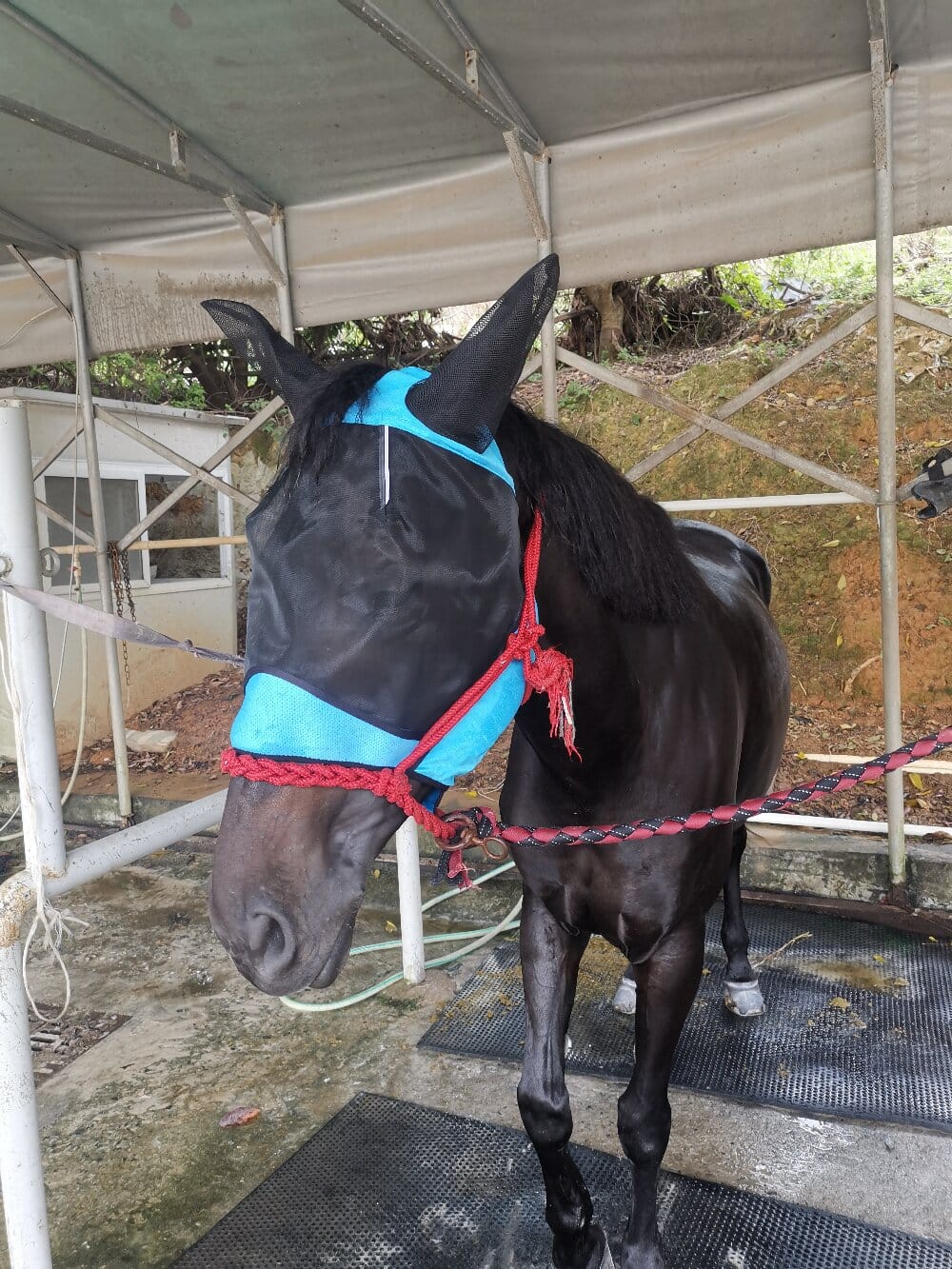A horse fly mask is an essential piece of equine gear designed to protect horses from irritating and potentially harmful insects. These masks shield the animal’s eyes, ears, and face from flies, mosquitoes, and other pests, ensuring comfort and reducing stress. Beyond physical protection, fly masks can also prevent eye infections and allergic reactions caused by insect bites. From a data interpretation perspective, the growing demand for these products reflects their effectiveness in improving equine welfare.
How a Horse Fly Mask Works
Constructed from lightweight, breathable mesh, a horse fly mask allows for airflow while keeping pests at bay. Many models feature UV protection to safeguard horses from sun damage, especially for those with light-colored or sensitive skin. The design often includes adjustable straps for a secure fit, ensuring the mask stays in place during movement. Data from equine studies show that horses wearing fly masks exhibit fewer stress-related behaviors, such as head shaking or rubbing against surfaces.
Key Benefits of Using a Fly Mask for Horses
- Pest Protection: Shields against flies, gnats, and other insects that can cause irritation or transmit diseases.
- UV Protection: Reduces sun exposure, particularly beneficial for horses prone to sunburn.
- Enhanced Comfort: Minimizes distractions, allowing horses to graze or exercise peacefully.
- Prevents Infections: Reduces the risk of conjunctivitis and other eye-related issues caused by debris or insects.
Choosing the Right Horse Fly Mask: A Data-Driven Approach
Selecting the best fly mask involves analyzing factors such as material durability, fit, and additional features like ear covers or extended nose protection. Market trends indicate a preference for masks with moisture-wicking properties and reinforced stitching for longevity. Data from customer reviews often highlights the importance of proper sizing to avoid discomfort or slippage. Horse owners should also consider seasonal needs—for example, a mask with UV protection is ideal for summer months.
Common Misconceptions About Fly Masks
Some horse owners believe that fly masks are unnecessary if their animals are kept indoors or in low-pest areas. However, data suggests that even minimal insect exposure can lead to discomfort or health issues over time. Another misconception is that all fly masks are the same, but variations in design and material quality significantly impact effectiveness. Research-backed insights emphasize the importance of investing in a well-constructed mask tailored to the horse’s environment.
Conclusion
A horse fly mask is more than just a simple accessory—it plays a crucial role in maintaining equine health and comfort. By interpreting data on pest behavior, material performance, and horse responses, owners can make informed decisions when selecting the right mask. Whether for daily use or specific conditions, this protective gear ensures horses remain happy, healthy, and free from unnecessary stress caused by insects.

